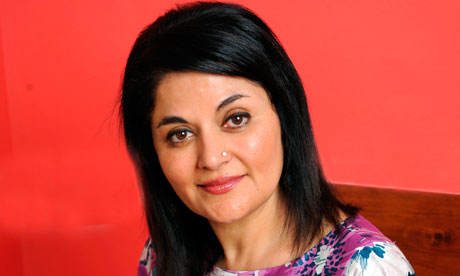
Kishwar Desai was a successful television presenter and executive in India for 25 years before moving to writing. Her first novel, Witness the Night, won the Costa first novel award and was translated into more than 25 languages. She is married to the economist Lord Meghnad Desai and divides her time between London, New Delhi and Goa.
You published your first novel when you were already in your 50s. Did you always want to write fiction or did the urge come late?
I wanted to be a writer when I was a little girl. I was a great reader. But I came late to it because I worked in television for such a long time. It involved a lot of writing because I did the scripts to begin with and moved into anchoring. But I really wanted to do something more substantial. Then when I relocated to London I thought, instead of looking for another job, why not just try to write?
Was it a tough transition?
My first foray into writing was a non-fiction book [Darlingji: The True Love Story of Nargis and Sunil Dutt, 2007], and it wasn't that hard because I had been making documentaries for a long time and I could use a similar structure. But I really had no hope for my first novel because it's about a very serious subject, female foeticide and infanticide.
What made you tackle that?
It was something boiling in me for a long time. My first story as a print journalist, 20 years ago, was on female foeticide. I researched the subject, met doctors and so on. Then, after I moved to London, whenever I'd go back to India I'd see even more signs that women were being treated badly. I wrote the book in a rage, in about a month. It's a crime that goes completely unpunished – you can kill a child and no one will punish you.
Your new novel, Origins of Love, is about the commercialisation of artificial reproductive techniques such as IVF and surrogacy. Do you find fiction a good way to explore topical issues?
In non-fiction you have to be so careful what you say; you cannot go beyond the facts. A good journalist doesn't put himself into the story. Fiction gives you that sort of leeway, of being able to connect disparate elements and create something more holistic and also more emotionally binding.
In the novel, you depict a flourishing surrogacy industry, with poor Indian women effectively renting out their wombs to western couples who want children. Is this really happening?
Yes, it's becoming huge. There are hospitals where women are kept for the whole nine months while they carry someone else's child. There are good stories, where the surrogate is well looked after, but I would like to make people aware of the sheer exploitation of it, the fact that these women are extremely poor. They are carrying someone's child for two or three thousand pounds. They may do this three or four times. They may be forced to have a caesarian.
Would you like the practice to be banned?
It's too late for that. The whole industry has been set up. I don't like the idea at all, but I can understand there are parents who want it, so who am I to be moralistic? But it's a very grey area and that's why I wrote the novel. I want people to understand there are all these issues involved.

